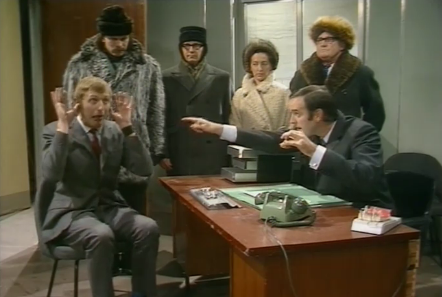Media recruiting tips: how to succeed in an interview – if you get one

This article first appeared in Press Gazette
This month, as promised, further media recruiting tips, namely a brief look at how to succeed in interviews. I’ve had some real horrors in my time, including a man who, boasting about the money he earned, dropped his trousers to show me the labels. Unusual: but there are many potential pitfalls. With some comments from Allan Cross of The Media Network, here are some danger areas to watch out for:
Presentation. The thing about first impressions is trite but true. In this day and age, a man may not have to wear a tie to an interview but it is important that the clothes you wear are presentable, and your shoes clean. “Have a sense of the company, and dress appropriately,” says Cross. “Your appearance reflects your judgement. Can you be trusted to have an ambassadorial role for the company?”
It’s not just your clothes. Do not drink before an interview; and do not have a cigarette (to a non-smoker, you’ll stink). In extreme circumstances, I have had to tell candidates to take a bath before meeting my client.
Preparation. Make sure you understand the company, the product, and the audience it serves. In addition, says Cross, think about what the job will demand of you: “If you have seen a job description or an advert, make a checklist of the qualities you need to communicate. If you feel you haven’t covered them off in the meeting, ask a question at the end which plays to your strengths.”
Like me, Cross is usually impressed by someone who puts a notebook on the table and has done some research. “An employer wants someone who is keen to work for them. Someone who shows they are genuinely interested has the edge.” However, do not spend the entire meeting with your head in the notebook: engage with your interviewer.
Conduct. Please don’t bang on about how much you hate your current boss / job. It may be true, but it never puts the complainant in a good light: and, worse, it makes you look indiscreet and unprofessional – never good qualities for a journalist. Similarly, never be too desperate. Yes, clients want someone who is keen; but they don’t want to feel pity.
A typical interview is between 45 minutes to an hour. Use the time well, and do not waste time on pointless digressions. Watch for signs of boredom. Don’t be over-familiar; and don’t swear, even if the interviewer already has.

Follow-up. If you feel there was a question you didn’t cover off well, send the interviewer an email with your reasoned thoughts on the issue. “And sending an email that says ‘I enjoyed the meeting and am even more keen on the opportunity now’ can’t do any harm”, says Cross.
Ultimately, though, the interview is actually a two way process. Your aim at the end of the meeting is simply to be in a position to decide whether you want to work with the people on the opposite side of the desk. If you turn up drunk, or drop your trousers, you’re unlikely to have that opportunity.
Martin Tripp Associates is a London-based executive search consultancy. While we are best-known for our work in the TMT (technology, media, and telecoms) space, we have also worked with some of the world’s biggest brands on challenging senior positions. Feel free to contact us to discuss any of the issues raised in this blog.